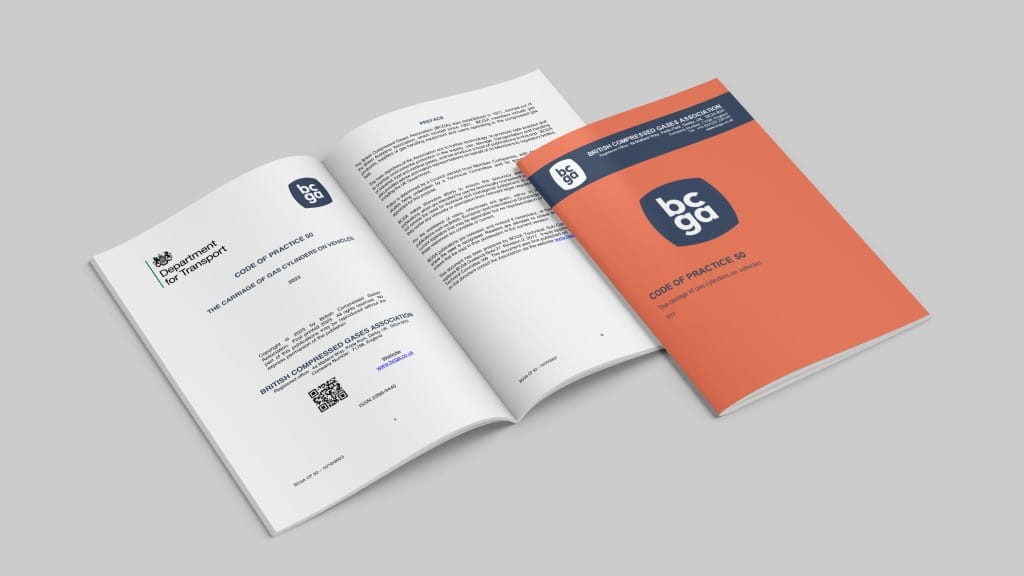BCGA publishes updated Code of Practice 50 for safe transport of gas cylinders
- March 11, 2024
- 1:58 pm


Iain Hoey
Share this content
New guidance for emergency services on gas cylinder transport by BCGA
The British Compressed Gases Association (BCGA), in collaboration with the Department for Transport, has released an updated version of Code of Practice 50, titled ‘The Carriage of Gas Cylinders On Vehicles’.
This revision is a thorough update of the previous document, Guidance Note 27, reflecting the latest legal and safety requirements.
Code of Practice 50 is now available for free download, offering comprehensive information on a range of critical aspects, including legal obligations, threshold quantity calculations, compliance with international carriage agreements, and guidelines for roadside inspections.
The updated code also encompasses details on gas-fueled vehicles, fuel labels, personal safety, and recommended actions in case of an incident.
This extensive revision demonstrates the BCGA’s ongoing commitment to safety and best practices in the carriage of gas cylinders.
Expert insights and legal alignment
Jake Lake, Technical Manager of the BCGA, highlighted the significance of the updated code: “Gas cylinders are commonly used and many thousands are transported every day without incident, but to ensure that they are safe for transport there is specific legislation in place, as well as supporting guidance.”
Lake emphasised the alignment of the new Code with the Carriage of Dangerous Goods and Use of Transportable Pressure Equipment Regulations 2009, which forms the legal framework for the transport of dangerous goods in Great Britain.
Lake further added: “It was reviewed by the Competent Authority in the Department for Transport and reflects best practice for the carriage of gas cylinders.”
The update, last undertaken in 2017, ensures that the Code remains relevant and resourceful for the emergency services, embodying BCGA’s dedication to mission safety in the compressed gases industry.
BCGA’s role in promoting industry standards
The BCGA, a leading UK membership body for the compressed gases sector, is known for its stringent quality, safety, and environmental standards.
Members of the association contribute their expertise to promote best practices in technical, safety, health, and environmental issues.
The Technical Committee and its subcommittees of the BCGA are instrumental in the development of the association’s extensive and highly regarded library of technical documents, including Codes of Practice and Guidance Notes.
These documents are widely referred to across the industry and related sectors, both nationally and internationally, solidifying BCGA’s role in shaping industry standards.
IFSJ Comment
The British Compressed Gases Association’s release of the revised Code of Practice 50 is a noteworthy development in enhancing safety standards in the transportation of gas cylinders.
This update, embodying current legal frameworks and best practices, is particularly beneficial for the emergency services, ensuring safer handling and transport of gas cylinders.
Such initiatives reflect the industry’s ongoing dedication to safety and compliance, and the BCGA’s role in fostering a culture of safety and responsibility.
The continued development of comprehensive, accessible safety guidance is vital in upholding the highest standards in the compressed gases industry.



